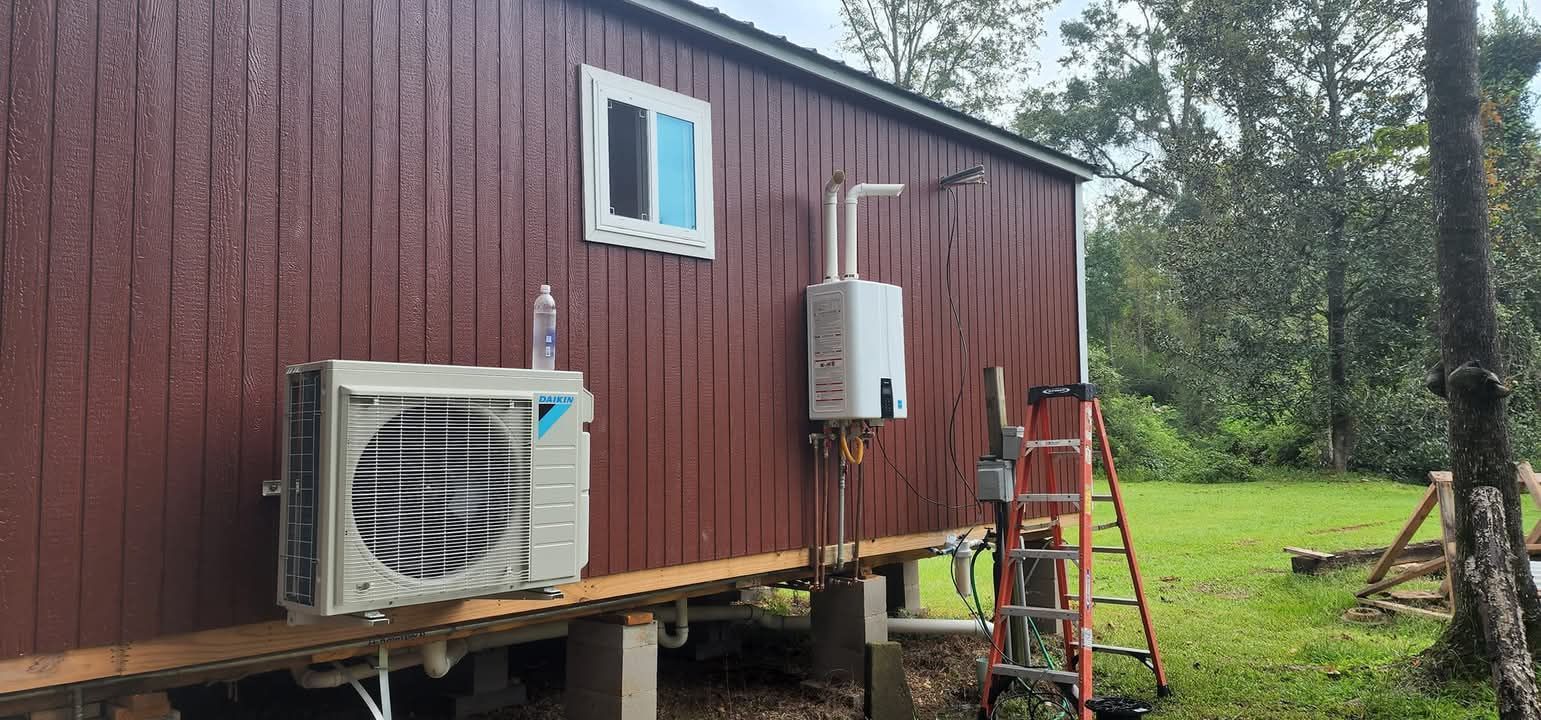What Size AC Unit Do I Need?

Key Takeaways
- Proper AC sizing ensures comfort, reduces energy bills, and increases the life of the unit.
- SEER and BTU ratings are measures of cooling capacity and energy efficiency.
- J Manual Calculations provide precise, professional sizing.
- Central, ductless, window, and portable units offer a variety of household applications.
- Matching your home size to the AC sizing chart helps prevent short cycling and overloading.
Why AC Unit Size Matters For Comfort And Efficiency?
An undersized AC unit runs constantly, while an oversized one short-cycles frequently, both raising the bill and lowering comfort. To avoid wasting energy, you need to accurately measure your space to choose the right AC system size.
Identify Air Conditioner Type For Your Home
Every home has a unique cooling requirement, and therefore, the selection of the right type of system is necessary. Each system varies in energy use, cooling power, and how it’s installed. Some of the common ones are:
- Central Air Conditioning Installation: Best for whole-house cooling and energy savings.
- Ductless Mini-Split Installation: Ideal for homes without ducts or zoned cooling.
- Window Air Conditioning Installation: Great for single rooms or temporary setups.
- Portable Air Conditioning Installation: Flexible, portable, and useful for apartments or rental homes.
How Do SEER And BTU Ratings Help?
SEER (Seasonal Energy Efficiency Ratio) and BTU (British Thermal Units) are two key metrics to analyze the energy use and cooling capacity of an air conditioner.
What Is A SEER Rating?
SEER ratings quantify energy consumption per cooling capacity in values ranging from 13 to 25+. Air conditioners with high SEER ratings help reduce energy costs, improve efficiency, and save money in the long run.
What Is A BTUh Rating?
BTUh (BTU per hour) is a measure of how quickly an air conditioner cools. Large areas need large BTU numbers. Besides looking at the BTU rating, be sure to watch for
replacing filters and charging refrigerant because low levels of refrigerant reduce efficiency.

How To Estimate The Right Size?
Multiply the square footage by 20 to get an approximate BTU need. For instance, 1,000 square feet would need 20,000 BTUs.
Insulation, sunlight, and ceilings also need to be taken into account. Key considerations for your estimate:
- Square room area
- Ceiling height (adjust if higher than 8 feet)
- Number of windows and sunlight quantity
- Quality of insulation
- Occupancy and equipment
Request A Manual J Calculation Of Energy Audit
The J HVAC Manual calculation method considers windows and occupancy aside from heat gain to arrive at proper sizing. Southern HVAC applies this method to help our customers choose the right air conditioning system, which saves them from oversizing and undersizing mistakes.
Match Your Home Size To An AC Size Chart
You can use this chart to compare home size to BTU needs:
| Home Size (sq ft) | Recommended BTU | Tons of Cooling |
|---|---|---|
| 600–1,000 | 18,000–21,000 | 1.5 – 1.75 Tons |
| 1,000–1,500 | 21,000–30,000 | 1.75 – 2.5 Tons |
| 1,500–2,000 | 30,000–36,000 | 2.5 – 3 Tons |
| 2,000–2,500 | 36,000–45,000 | 3 – 3.75 Tons |
| 2,500–3,000 | 45,000–54,000 | 3.75 – 4.5 Tons |
Choose The Right HVAC Installation Company
Southern HVAC proudly serves homeowners across Hammond, Ponchatoula, Springfield, Natalbany, Tickfaw with licensed, energy-efficient AC installs. Our experts always assess and recommend the ideal AC size before installation.
Still Unsure? Connect With an HVAC Professional Today
Uncertain about the AC system size?
Book an appointment with Southern HVAC, and our professionals will select and install the correct AC system for you. We are at your service 24/7.
Contact us today!

FAQs
Why is the AC blowing hot air?
Low refrigerant levels or dirty filters can block the cooling process, causing hot air. You should clean the coils, calibrate the thermostat, or charge the refrigerant if your AC starts blowing warm air.
Do older systems use more energy?
Yes. Old AC systems consume more power than energy-efficient HVAC upgrades with high SEER ratings.
Can a blocked drain line cause damage?
Yes. Blocked condensate drains lead to leaks and mold. Clean drain lines regularly.
Are window ACs less efficient?
Yes. Ductless mini-split installation and central AC systems offer better cooling solutions.
Is natural ventilation a substitute?
Not fully. While useful, air conditioning provides consistent cooling, unlike natural airflow.








